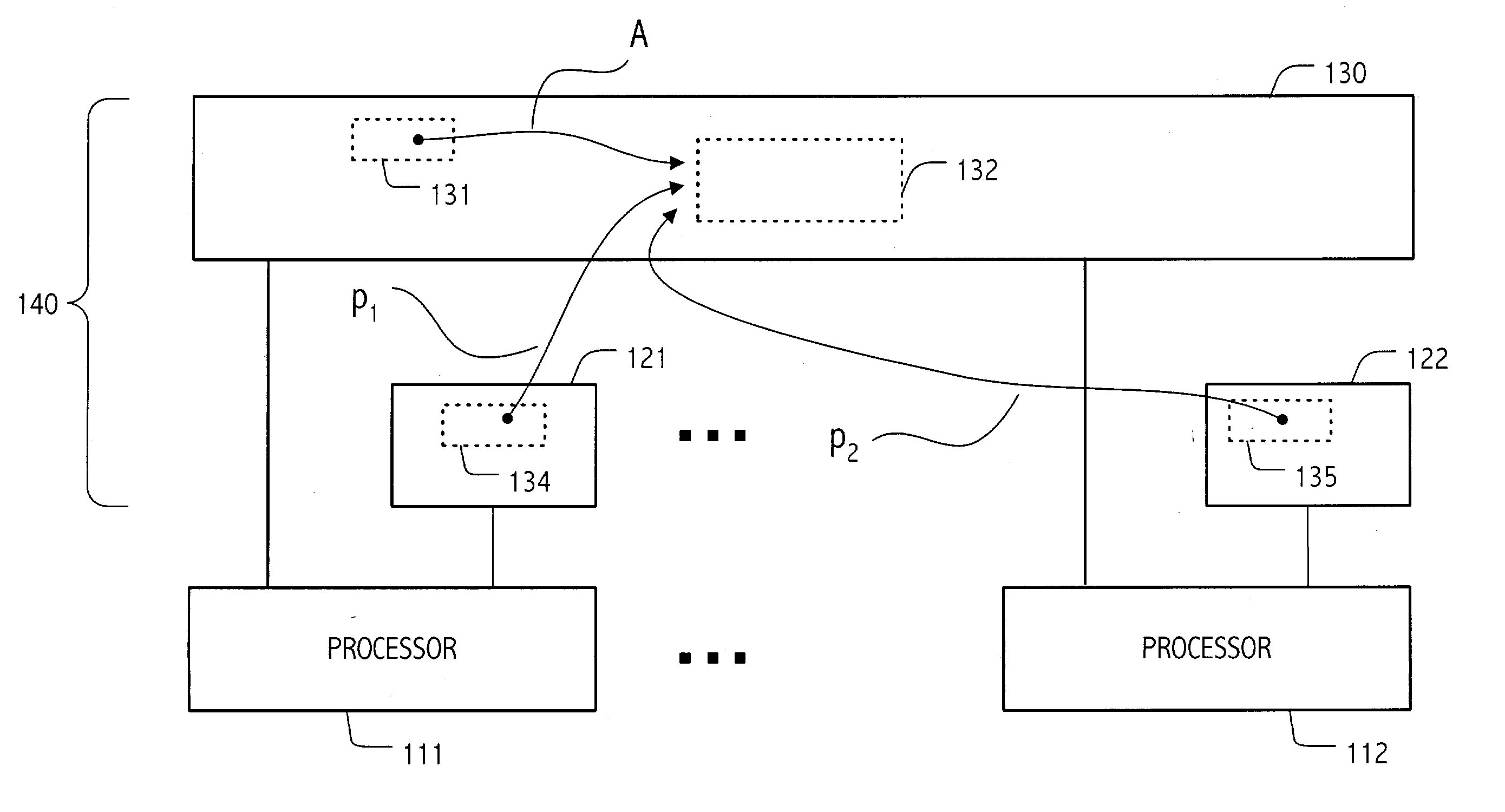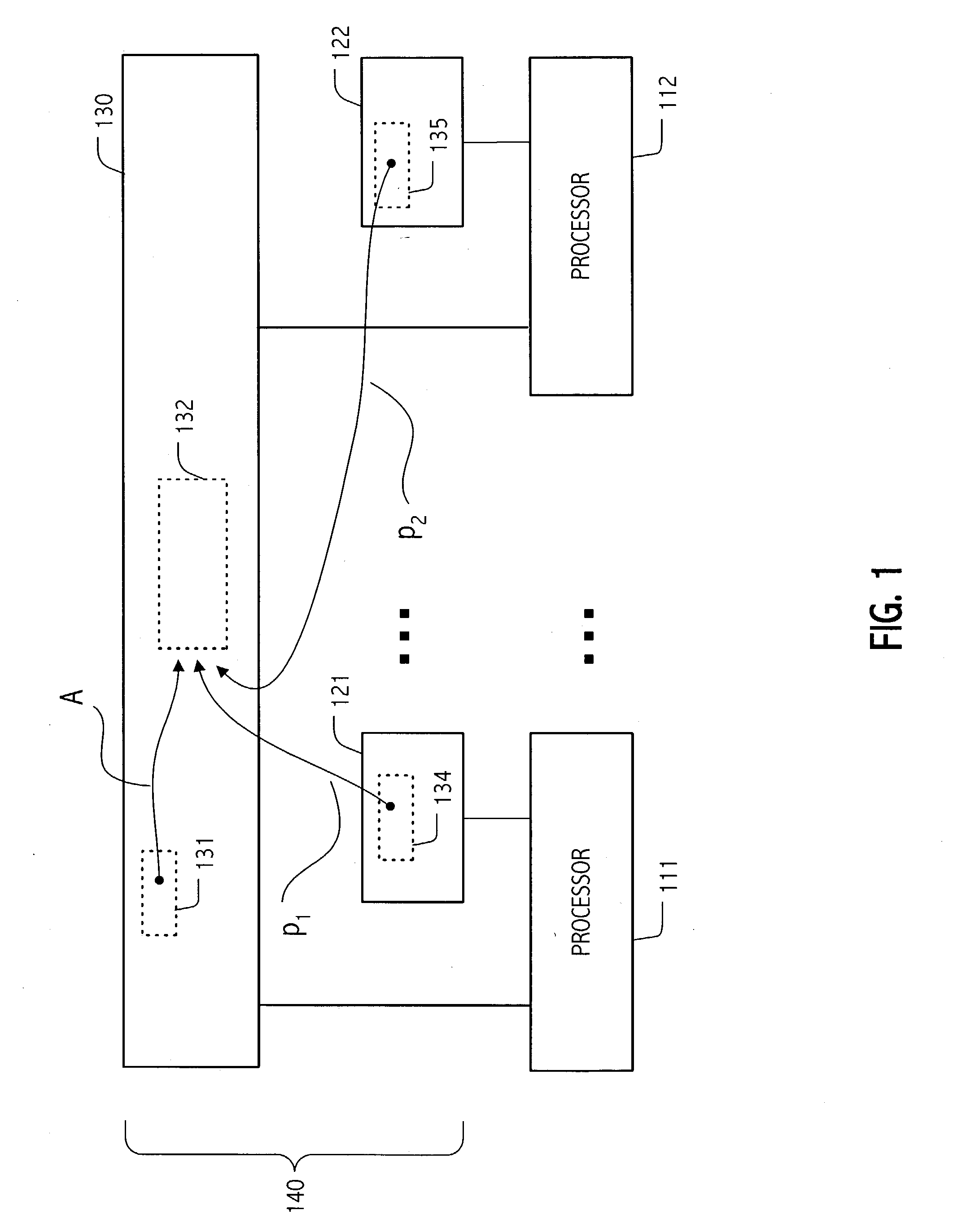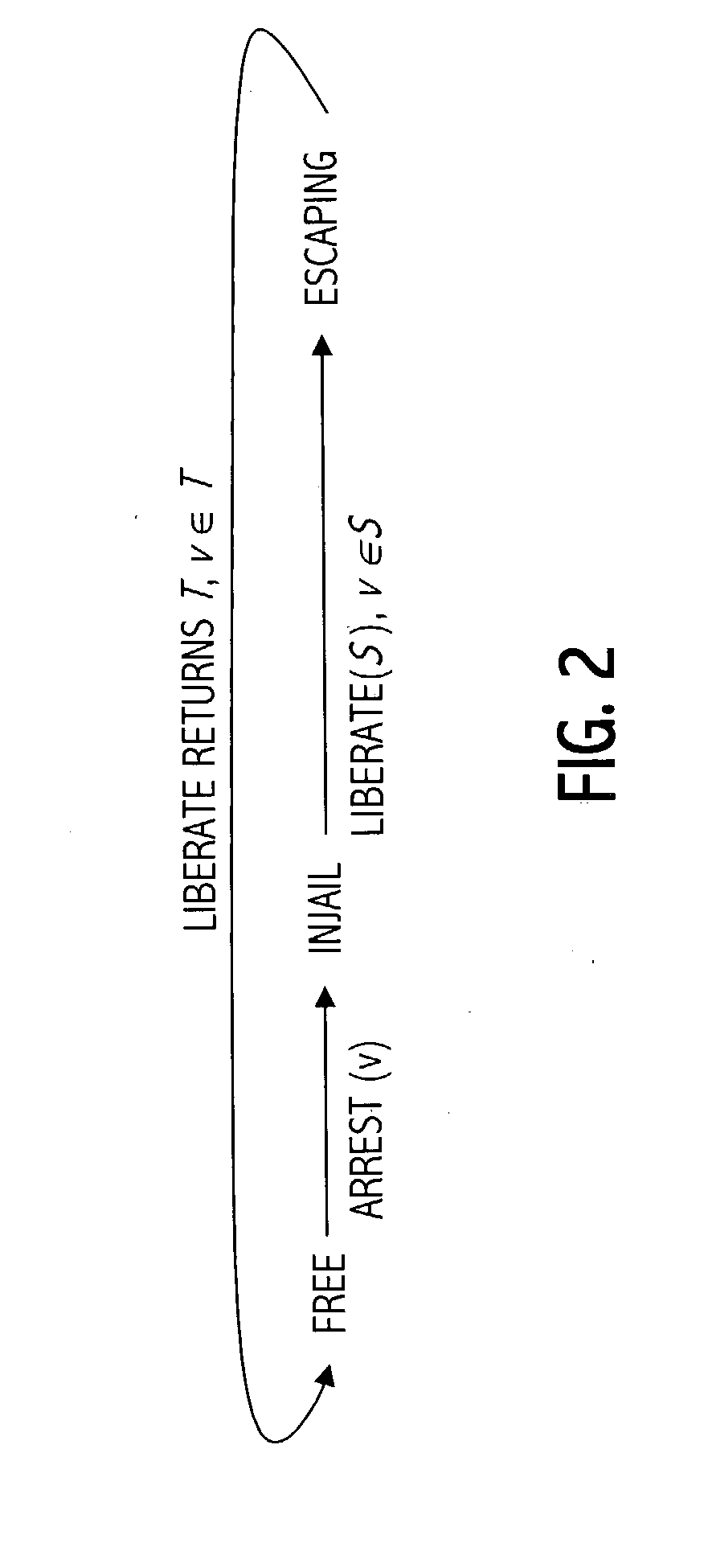Non-blocking memory management mechanism for supporting dynamic-sized data structures
a dynamic-sized data and management mechanism technology, applied in data processing applications, multi-threaded computations, instruments, etc., can solve the problems of implementations that cannot free memory that is no longer required, maintain explicit, and manage dynamically allocated storag
- Summary
- Abstract
- Description
- Claims
- Application Information
AI Technical Summary
Problems solved by technology
Method used
Image
Examples
Embodiment Construction
)
[0019] A versatile mechanism has been developed for managing values shared amongst threads of a multithreaded computation. In some important exploitations, certain values so managed encode pointers to storage that is dynamically allocated, reused and / or freed in a computational system. Accordingly, techniques of the present invention provide a useful framework for supporting memory management in dynamic-sized data structures (i.e., those that can grow and shrink over time). Because some implementations of these techniques exhibit strong non-blocking properties (including, in some cases, wait-free properties), the techniques are particularly attractive for use in connection with non-blocking implementations of dynamic-sized, data structures. Indeed, a variety of applications to lock-free data structures are described herein.
[0020] However, while persons of ordinary skill in the art will recognize that the described techniques may be exploited in connection with data structures and / o...
PUM
 Login to View More
Login to View More Abstract
Description
Claims
Application Information
 Login to View More
Login to View More - R&D
- Intellectual Property
- Life Sciences
- Materials
- Tech Scout
- Unparalleled Data Quality
- Higher Quality Content
- 60% Fewer Hallucinations
Browse by: Latest US Patents, China's latest patents, Technical Efficacy Thesaurus, Application Domain, Technology Topic, Popular Technical Reports.
© 2025 PatSnap. All rights reserved.Legal|Privacy policy|Modern Slavery Act Transparency Statement|Sitemap|About US| Contact US: help@patsnap.com



